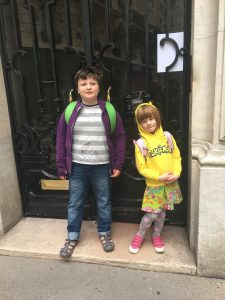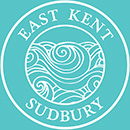 I’m Abel and I’m 10. I’ve been unschooled for most of my life. That means you stay with your parents at home and learn stuff and don’t go to school. I don’t do lessons. So I play, or if I want to I choose to do something. I learn what I want to, not what I’m forced to. When I wanted to learn to read my parents helped me and now I’m quite a good reader. My interests are games on the iPad, history, Harry Potter, strategies, swimming and money. The best thing about unschooling is that there are no lessons. The most difficult thing for our family was that everyone felt trapped in when we were at home and couldn’t decide where to go because no one could agree.
I’m Abel and I’m 10. I’ve been unschooled for most of my life. That means you stay with your parents at home and learn stuff and don’t go to school. I don’t do lessons. So I play, or if I want to I choose to do something. I learn what I want to, not what I’m forced to. When I wanted to learn to read my parents helped me and now I’m quite a good reader. My interests are games on the iPad, history, Harry Potter, strategies, swimming and money. The best thing about unschooling is that there are no lessons. The most difficult thing for our family was that everyone felt trapped in when we were at home and couldn’t decide where to go because no one could agree.
When you are home educated you do things like going to see friends, but in my opinion you can choose what you do more in democratic schools. Democratic schools are very flexible and people are there but you don’t need to play with them if you don’t want to. That’s the best thing about them in my opinion. In home education you have set things to do like visitors, going to see people and going to your groups whereas in a democratic school you can ask to do something and then you can do it straight away and you can vote to change a rule if you want to.
Now, I’m going to a school that’s democratic. It means I’m part of a community. Occasionally the kids break the rules but not that often. Sometimes the adults do too but less often. It’s not like normal school at all. No one is forced to do anything. The only thing you have to do is your cleaning job (or tâche de ménage in French). That’s like cleaning rooms, vacuum cleaning and using the mop.
If someone does something you don’t like or breaks the rules you can write them up. If they are written up too many times they are suspended. So only people who want to be there are there. You can only really go there if you want to go there and don’t hit or kick or do other kinds of violence too much.
I thought it would be harder to change from unschooling to democratic school than it is. You don’t even have to get used to it that much, you just go there and try. It was thinking about it beforehand that was hard, not actually being there.
The disadvantage and the advantage is that you’re in charge of yourself. Other people don’t make you do things. So it’s all your choices. The disadvantage of this is that after being at a classic school you might feel there should be more structure. Even though it could be a disadvantage it could also be an advantage because you can choose what you do.
On a normal day I get to school, you are meant to arrive between 9.30-10.45, but some people arrive later. Then I watch Loud House or I listen to audio books and play on my iPad a bit. I usually play Minecraft. Sometimes I play with friends who aren’t at the school over Xbox live joining. Sometimes I’m the judge, it’s not every day but it’s quite often. The judge for the CEA (the Judicial Committee) and I do my cleaning job at 17.00. Then I play Go sometimes. Go is an old game, older than chess, quite simple but there are a lot of strategies once you get into it. Other people might play with the things in the mezzanine or watch something. They can read books, sometimes they go to the park that’s nearby. And there’s lunch time – well it’s not really a time. There is kind of a time when most people eat around 13h or 14h but if you want to eat earlier or later it’s okay. There’s not food you have there you bring your own food, if you are certified you can cook it in the oven or microwave.
Certification is when you ask a member of staff to supervise you and tell you if you’re able to use it. Using the computers, using stuff in the music room and using the consoles, or cooking and heating up something, you need to be certified. Going out by yourself is something else you have to be certified for.
I think anyone could go to a democratic school if they wanted to. They have to try not to hit, not to insult. It’s all about what you ask to do, you won’t get made to do writing or reading or maths but if you ask they will help you.
There is no one best thing about a democratic school because everyone would say something different. You can choose what you do, you can play something, you can learn something. Adults might think that children won’t learn or there’s no point in going to a democratic school. Some adults think that letting children do what they want would have no point because they don’t think their children would want to learn for themselves. But they think that because when children go to school they are forced to do things that makes them not want to. But if they weren’t forced they would probably want to.
There’s not really more to it than that.
TAGS: DemocraticEducationSDEself-directed learningunschooling

This is a fantastic blog from Abel. I did not know what a Democratic School was like and his blog explains it. He obviously enjoys going to school. I am so proud of him
Abel: I loved reading about your experiences as a member of a democratic school, and it’s great to hear your reflections on how much easier it has been to transition from unschooling to the democratic school than you feared it would be. I hope that you’ll write more blog posts about what you’re up to and where your interests are leading you – I’m so glad that we got to visit you earlier this year and see your school and neighborhood. Keep on exploring!